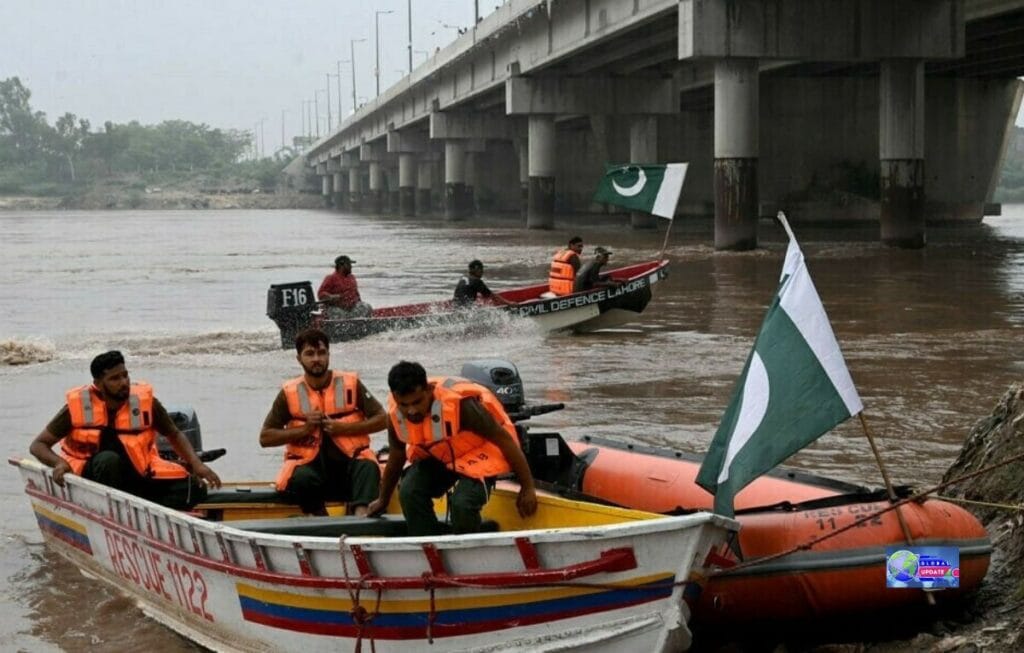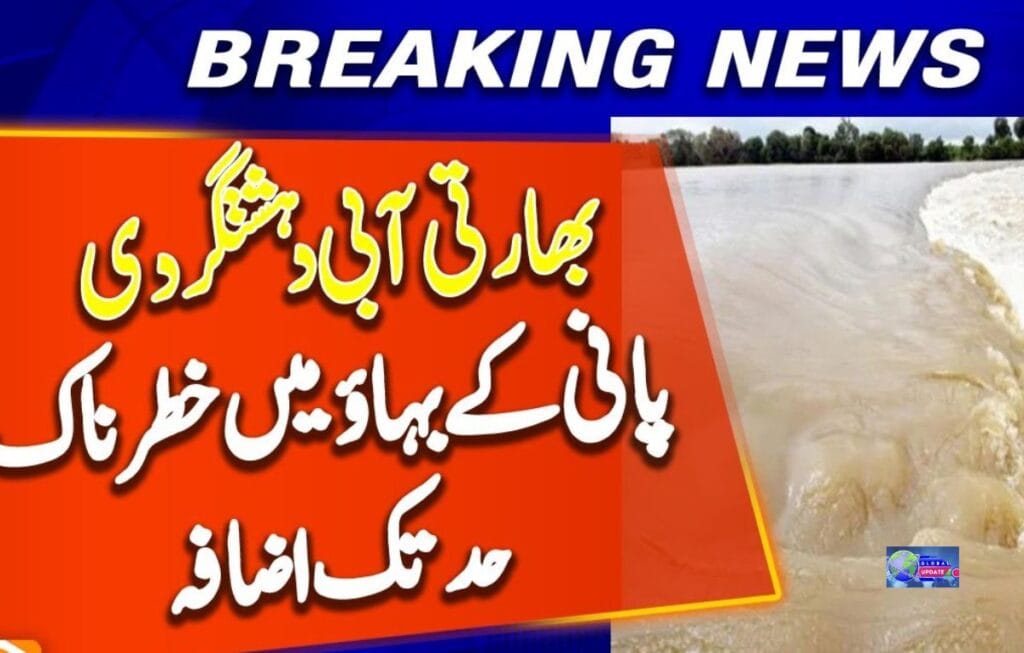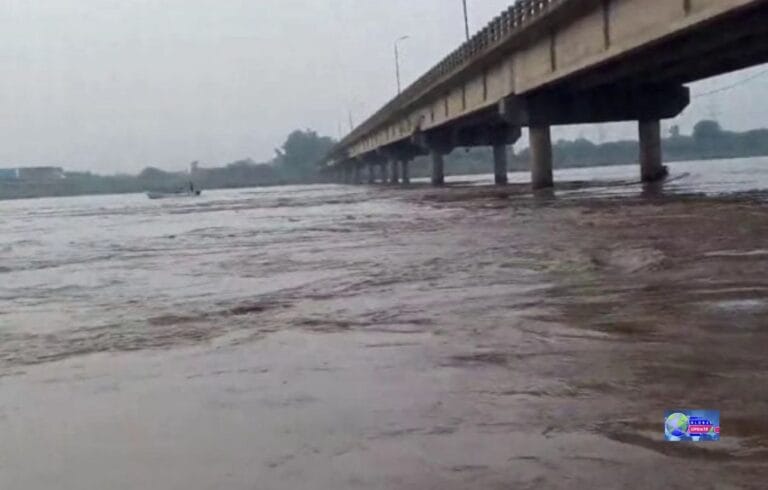The National Disaster Management Authority (NDMA) has issued a flood alert following India’s release of water into the Ravi River. The move has heightened fears across Punjab, which is already grappling with dangerously high flows in the Sutlej River.
A day after New Delhi alerted Islamabad about planned releases into the Sutlej and Chenab that have already flooded portions of Pakistan, the National Disaster Management Authority (NDMA) issued an alert for possible flooding in the Ravi due to increasing inflows from India’s Madhopur Headworks.
Following a warning about the Tawi River in Jammu, New Delhi contacted Pakistan for the second time in two days on Monday to alert Islamabad to the possibility of flooding the Sutlej River, according to diplomatic sources who spoke to Geo News.

Ganda Singh Wala in Kasur Faces Surging Waters.
Water levels at Ganda Singh Wala, a critical point along the Ravi in Kasur, have risen sharply. Authorities reported an alarming surge, placing nearby villages at greater risk of flooding and damage to crops and infrastructure.
The Sutlej River Situation Remains Critical.
Even before the Ravi threat, the Sutlej had already been pushing flood limits. The continuous release of upstream water has made the situation increasingly precarious, with inflows exerting extreme pressure on embankments and threatening large-scale inundation.
Authorities are preparing and responding accordingly.
Authorities have placed rescue teams, local administrations, and disaster management officials on high alert. Emergency evacuation plans are in place, while relief camps and medical facilities are being readied for potentially displaced communities.
Farmers and residents are urged to take precautions.
Authorities have warned farmers and families living in low-lying areas to secure valuables and shift to safer ground. Livestock relocation and early harvest measures are also being advised to minimize agricultural losses.
Historical Strain on Cross-Border Water Management.
Experts highlight that such situations often stem from inadequate cross-border coordination on river water releases. Punjab, being downstream, faces the brunt of sudden discharges, turning seasonal flows into full-scale flood threats.
Call for Vigilance and Public Cooperation.
The NDMA has urged citizens to remain vigilant and follow official advisories closely. Timely cooperation with local authorities, it stressed, can prevent loss of lives and reduce damage in flood-prone areas.
Following the most recent alert, officials issued warnings based on information provided by India, according to sources.
New Delhi accuses Islamabad of coordinating the fatal militant strike, which Pakistan denies.

Based on these baseless charges, India launched a war against Pakistan in May, resulting in the most intense military conflict in decades, before the United States brokered a ceasefire.
The water pact has endured three wars, numerous battles between the two adversaries, and numerous diplomatic maneuvers.
On May 16, Reuters reported that Delhi is studying projects that would likely decrease the flow of water into Pakistan from rivers designated to that country.
India has also declared its intention to suspend the treaty until Pakistan demonstrates a credible and irreversible reversal of its support for cross-border terrorism.
Islamabad, on the other hand, declares that “any attempt to stop or divert the flow of water belonging to Pakistan” is an “act of war.”



